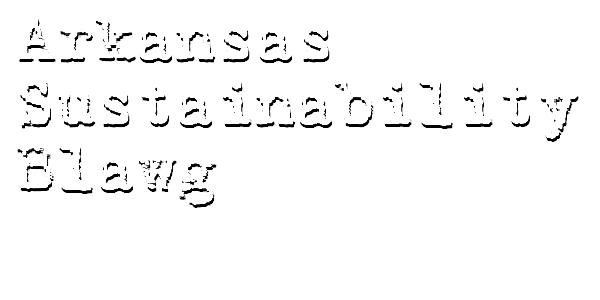The Arkansas Deceptive Trade Practices Act expressly grants standing to the Arkansas Attorney General and to private citizens (sometimes called “private attorneys general”). The Arkansas Attorney General always has standing to sue, and can seek injunctive relief as well as the recovery of damages and civil fines. Private attorneys general, however, can sue only if they suffer “actual damage or injury” as a result of a deceptive trade practice. (Department of Legal Citation: this provision can be found at Ark. Code Ann. § 4-88-113(f)). In other words, the mere fact that you discover an act of greenwashing does not mean that you can sue to stop the practice.
It turns out some members of the Arkansas Legislature are attempting to tinker with this aspect of the ADTPA. SB 164 proposes to add the following language to the ADTPA:
Proof of reliance upon a deceptive or unconscionable trade practice is not required to obtain the relief authorized by this chapter.At first blush, SB 164’s proposed amendment would appear to strengthen the ADTPA as a weapon for combating greenwashing. After all, if one does not need to “rely” on the greenwashing (i.e., to actually fall for the deception) to have the right to sue, prosecuting alleged greenwashers just got easier, right?
Wrong. Here’s why:
We know from a recent decision of the Arkansas Supreme Court, Baptist Health v. Murphy, that private citizens do not have the right to seek injunctive relief under the ADTPA. This means that private citizens can only recover money damages under the ADTPA. And, of course, you must suffer money damages before you can recover them.
SB 164 does nothing to change the requirement that private attorneys general – the very folks most likely to pursue greenwashers – must have suffered “actual damage or injury” before they can sue under the ADTPA. Consider: will a person who has not “relied” on the deceptive trade practice be able claim that they have been actually damaged or injured by the practice? It seems unlikely.
I suspect that SB 164 is a response to a ruling by a judge that the ADTPA required reliance. I leave the question of whether or not that is necessary and appropriate to the collective wisdom of our legislature and our Governor, who just happens to be a lawyer. But if the Arkansas Legislature wants to make the ADTPA a more useful arrow in the quiver of consumer protection, then it should consider giving private attorneys general the right to seek injunctive relief.

No comments:
Post a Comment
I welcome your comments. By commenting on this blog, you accept the blog's terms of use. You must use your first and last name when posting, and you must stay on topic.